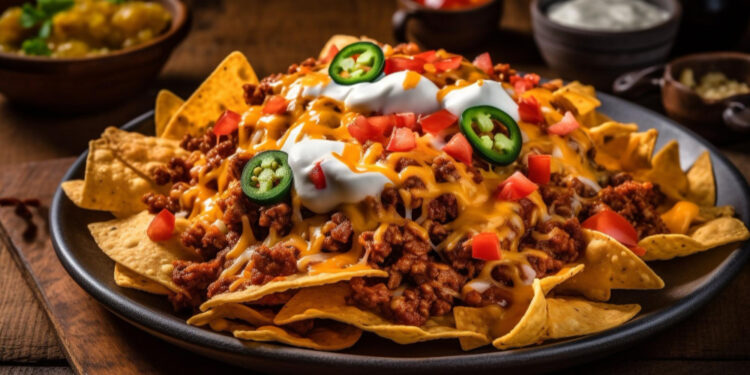In Argentina and Uruguay, picada is more than just a platter of snacks—it’s a cherished tradition that brings people together. Derived from the Spanish word picar, meaning “to nibble,” picada has long been a staple at gatherings, offering a delightful assortment of cheeses, cured meats, olives, and more. As we step into 2025, picada is experiencing a renaissance, blending its rich heritage with contemporary culinary trends.
The Deep-Rooted History and Cultural Importance of Picada
The picada’s journey began with the arrival of European immigrants to the Río de la Plata region in the late 1800s and early 1900s, particularly Italians and Spaniards who brought with them the traditions of antipasto and tapas. Over time, local adaptations emerged, using regional ingredients and reflecting the social rhythms of Argentine and Uruguayan life. Rather than a formal course, became a spontaneous, relaxed, and generous offering—a prelude to dinner or, often, the main event itself. It became symbolic of friendship and togetherness, an excuse to gather around the table without pressure, engaging in casual conversation, sipping Malbec or cold beer, and savoring an array of bold, comforting flavors.
Today, the cultural value of the picada goes beyond its ingredients. It is often used to mark milestones, holidays, and even informal work meetings. It thrives in both humble homes and upscale eateries, demonstrating its remarkable adaptability and universal appeal. The shared nature of the platter encourages connection and discussion, something increasingly cherished in an era where digital distractions often compete with human presence.
What Goes Into a Traditional Picada?
At its core, a traditional picada is a canvas of local favorites, reflecting regional palates and availability. You’ll find slices of salami, chorizo, and bondiola, all cured to perfection, arranged beside wedges of provolone, Roquefort, and Pategrás cheeses. Olives—both green and black—often marinated with garlic or herbs, add saltiness and depth, while pickled vegetables provide an acidic counterbalance. Peanuts, almonds, and papas fritas (chips) offer crunchy textures, and crusty breads or mini breadsticks make perfect vehicles for piling on each flavorful bite. What makes the picada unique is the balance between salty, tangy, creamy, and crunchy—designed to keep the palate entertained with every combination.
Regional twists are common. In the north, It may include spicy sausages and corn-based accompaniments, while coastal versions might introduce seafood or fresh herbs. The layout is usually informal but visually appealing, often spread out on a large wooden board or ceramic dish, inviting people to reach in and serve themselves.
How Picada Is Changing in 2025
Plant-Based Innovation and Health-Conscious Evolution
One of the most notable trends transforming picads in 2025 is the shift toward healthier and plant-based options. As more people adopt vegetarian, vegan, and flexitarian lifestyles, the traditional meat-and-cheese-heavy format is being reimagined. Now, you’ll commonly find vegan cheeses made from cashews or almonds, lentil or mushroom-based pâtés, and air-fried falafel balls included in the mix. Roasted vegetables—like zucchini ribbons, grilled peppers, and eggplant slices—are artfully added for color and nutrition, while dips like hummus, beetroot spread, and guacamole introduce vibrant, nutrient-rich elements. Whole-grain crackers and gluten-free alternatives ensure that dietary needs are accommodated without sacrificing taste or texture.
This evolution speaks not just to individual health goals, but also to environmental concerns. Diners, especially Millennials and Gen Z consumers, are paying more attention to sustainability, prompting chefs and hosts to opt for local, organic, and eco-friendly ingredients wherever possible.
International Flavor Fusions
While picada is rooted in Latin American culture, the globalized nature of cuisine in 2025 means that international influences are boldly making their mark. It’s not uncommon to see kimchi nestled beside olives, or tzatziki paired with artisanal crackers. Japanese edamame, Indian paneer cubes, Italian sun-dried tomatoes, and Mexican-style esquites (spiced corn salad) are making appearances on platters around the world. This fusion approach adds a multicultural dimension to picada, reflecting not just evolving tastes, but the increasingly diverse communities enjoying it.
This global fusion also allows people to create theme-based picadas—such as a “Mediterranean Picada” featuring tzatziki, baba ghanoush, dolmas, and Greek olives—or a “Spicy Street Food Picada” with harissa almonds, spicy sambal chicken bites, and chili-laced cheese chunks.
A Return to Craftsmanship: Local and Artisanal Ingredients
In contrast to supermarket-sourced cold cuts and cheeses, 2025’s picada is leaning into local craftsmanship and artisanal production. Small-batch cured meats, farmstead cheeses, homemade pickles, and locally harvested nuts are being featured more prominently, not only for their superior taste but for their story and connection to the community. Chefs are collaborating with local dairies and meat curers to design exclusive, seasonal picadas that highlight regional specialties. The traceability of these ingredients also appeals to ethically minded consumers who appreciate knowing where their food comes from.
In cities like Buenos Aires, Montevideo, and even globally in places like Barcelona and New York, artisanal delis and gourmet food trucks are offering signature picadas packaged in sustainable, reusable trays—perfect for on-the-go luxury snacking.
Interactive Picadas and the Rise of DIY Boards
As personalization becomes a premium in dining, DIY picada experiences are emerging in homes and restaurants alike. Rather than presenting a fixed platter, hosts are setting up “picada bars” where guests can choose their own pairings and create mini snack boards based on preference. Restaurants are also joining the trend, offering picada flights—small tastings of various themed boards. This approach makes the meal more interactive and encourages conversation, exploration, and creativity.
Picada kits, especially during the pandemic era and now in post-pandemic lifestyle transitions, remain popular for delivery or gifting. Many food services now provide customizable picada boxes for virtual meetings, birthdays, or corporate events—complete with wine pairing recommendations and serving instructions.
Styling for Social Media
Let’s not ignore one of the biggest modern influences on food: Instagram and TikTok. The visual appeal of food is now as important as taste. In 2025, picada boards are not only delicious—they are works of art. Intricate color coordination, aesthetic spacing, use of edible flowers, and layered textures make each board a spectacle. Home entertainers are investing in wood boards, slate platters, copper utensils, and handcrafted bowls to elevate the presentation. Many even take online courses to master the art of styling a picada that’s both functional and photo-worthy.
Conclusion
Picada in 2025 is more than just a snack—it’s an experience, a canvas for cultural expression, and a reflection of modern lifestyle values. While it honors its deep-rooted origins in Latin American hospitality and social connection, it is also agile enough to evolve with health trends, global culinary fusions, and aesthetic innovations. Whether you’re indulging in a rustic, traditional setup in a countryside home or exploring a chic, plant-based version at an urban tapas bar, picada has something for everyone. It’s not just about what’s on the board. In a world that moves fast and often feels disconnected, the picada reminds us to slow down, snack mindfully, and savor the moment together.
Stay connected for the latest news and updates on Topic News












